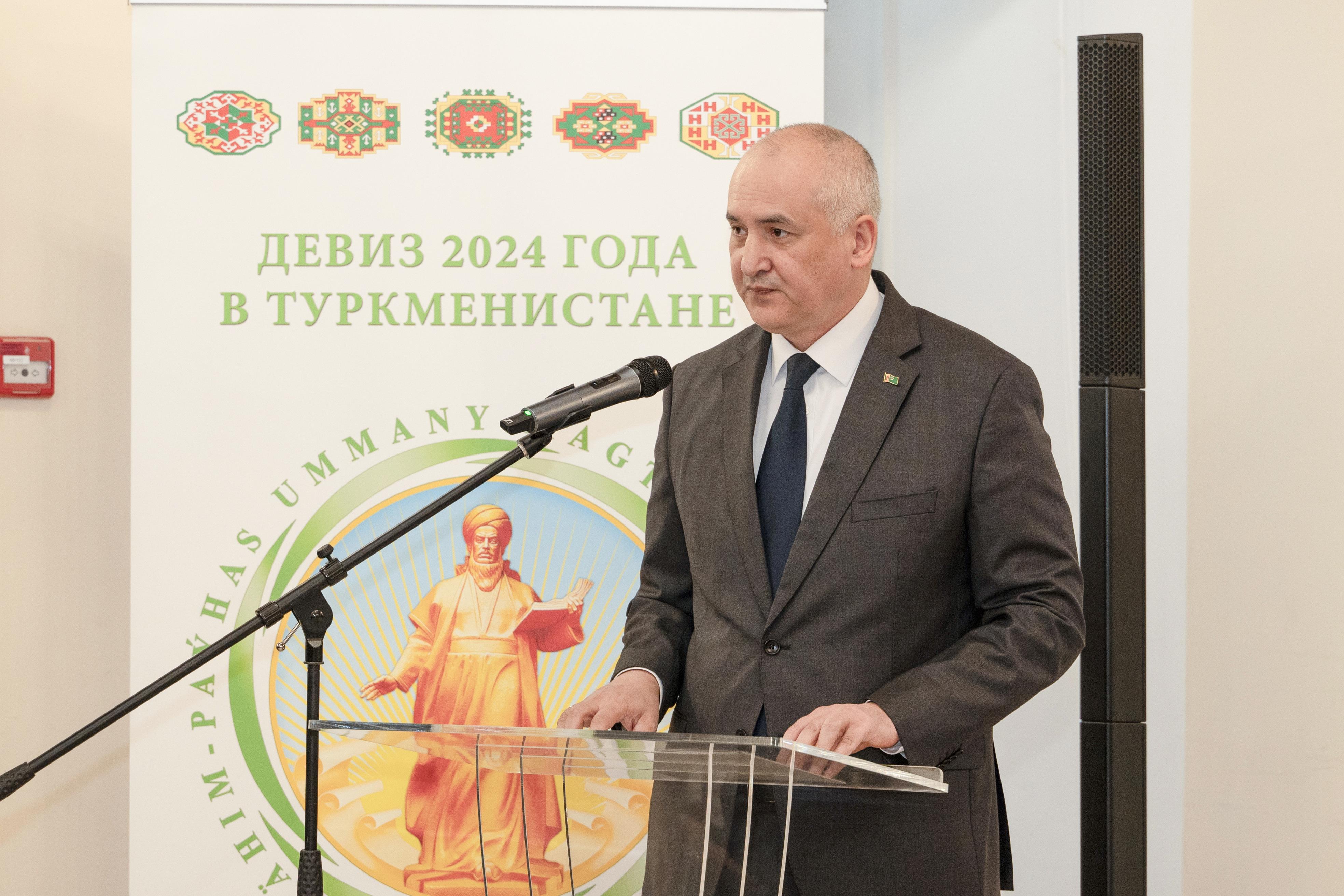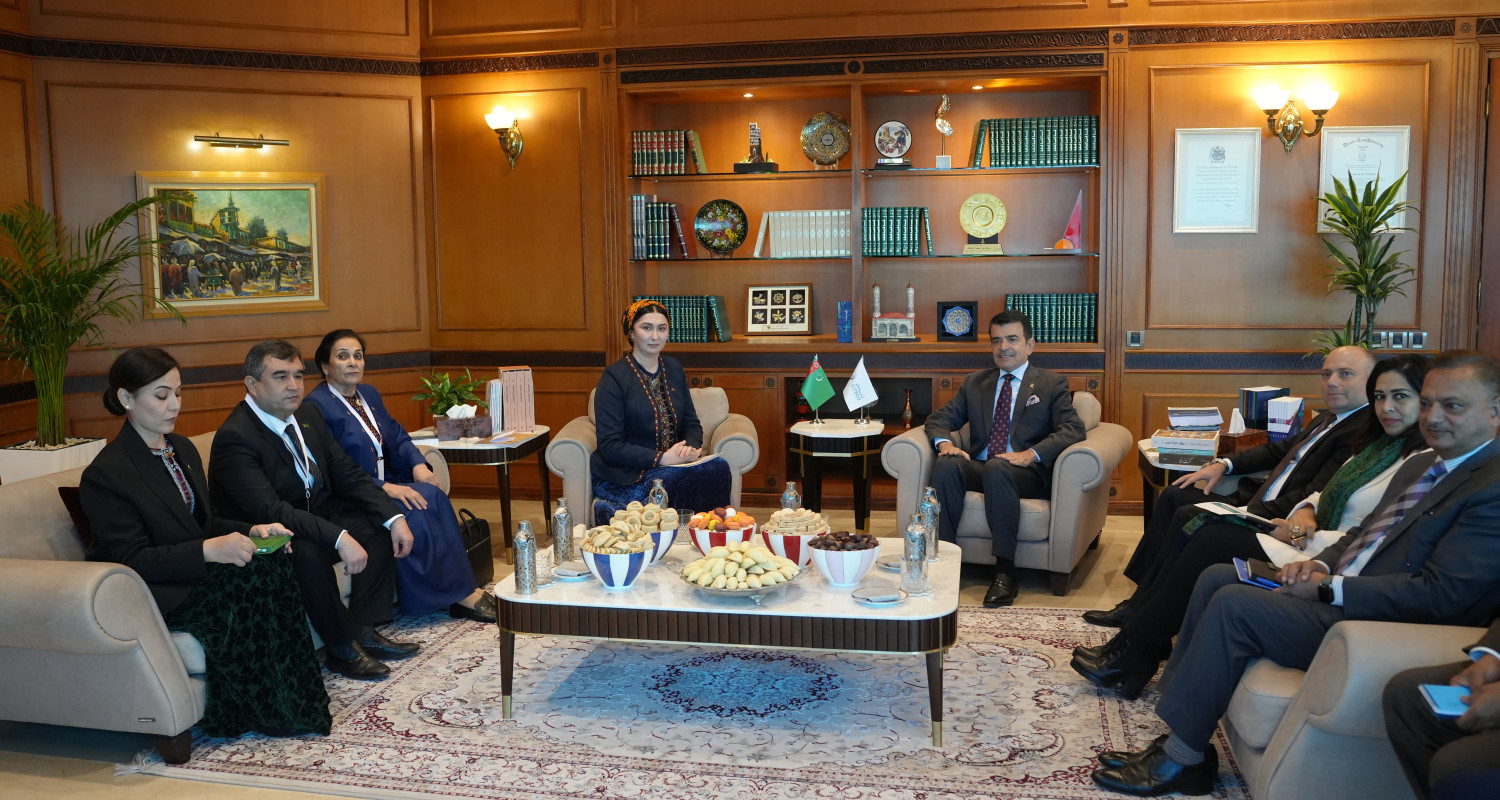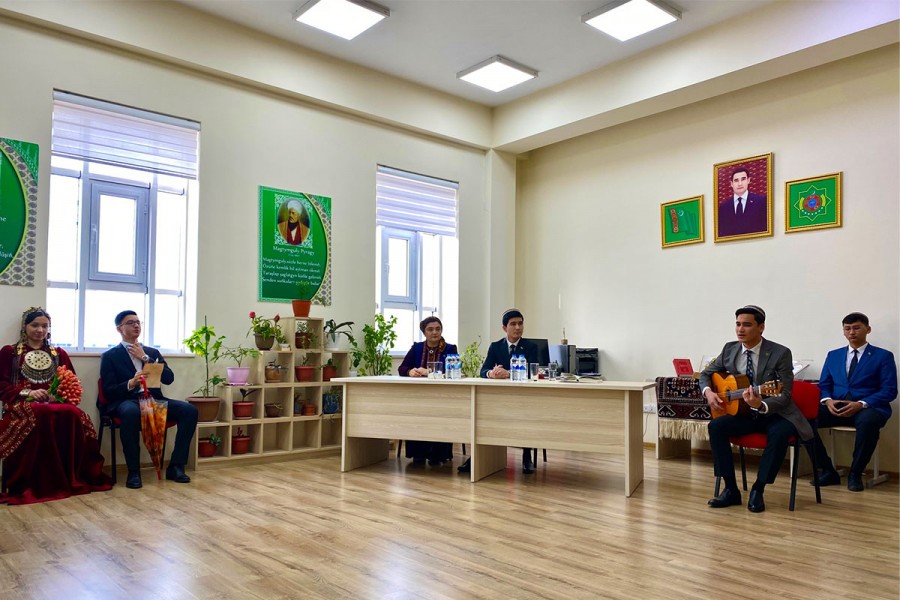On October 28, the concert hall of the Russian State Library's sheet music publications and sound recordings department at the Pashkov House hosted the conference "Magtymguly and His Role in World Culture" in a hybrid format, dedicated to the 300th anniversary of the eminent Eastern poet and thinker Magtymguly Fragi.
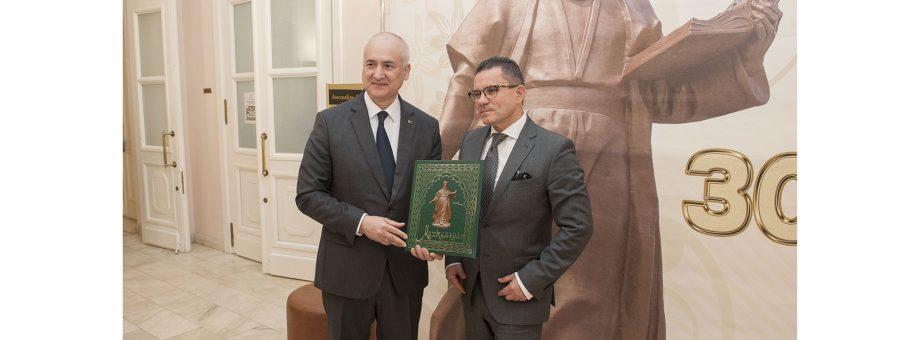
The event was organized as part of the VIII Moscow International Festival of Arts "Sounds of Dutar" named after Nury Halmamedov, in collaboration with the Russian State Library. At the opening of the conference, speakers included E.M. Aidogdyev, Ambassador of Turkmenistan to Russia, V.V. Duda, Director General of the Russian State Library, and composer M.S. Guseynov, Art Director of the Moscow International Festival of Arts "Sounds of Dutar".
In his speech, Ambassador Aidogdyev stated, "Magtymguly Fragi has rightfully entered the pantheon of world literary geniuses and outstanding historical figures. The uniqueness and universality, national and universal aspects—this blend defines the main feature of Magtymguly's poetic creativity and philosophy. His great legacy has shaped the conceptual foundation of Turkmen foreign policy. His voice advocating for peace, justice, humanism, friendship, openness and respect for all peoples has become part of the Turkmen genetic code, forming the alpha and omega of their worldview as part of humanity."
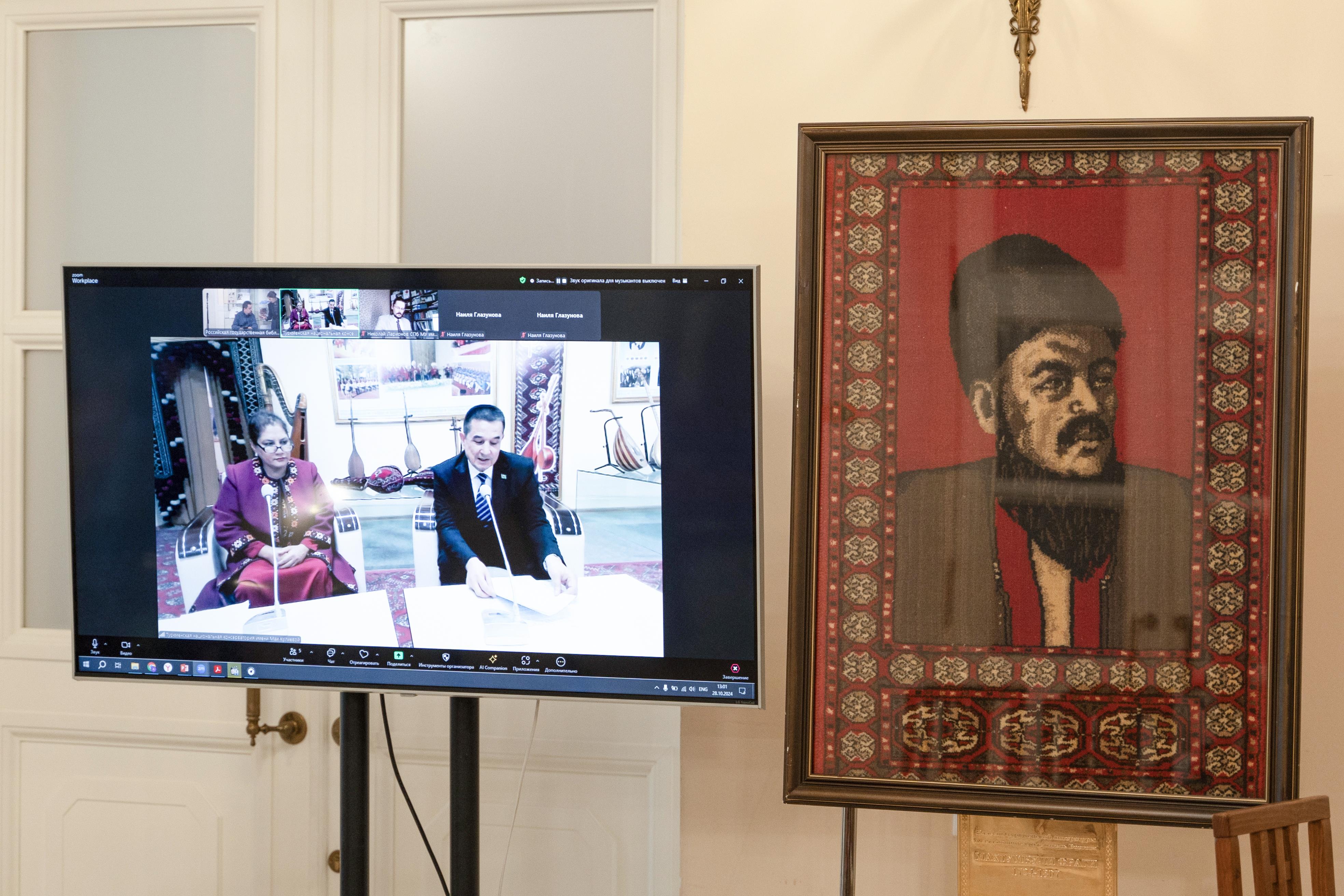
Addressing participants and guests, Director General of the Russian State Library V.V. Duda emphasized: "In 2024, the world is widely celebrating the 300th anniversary of the great Turkmen poet and thinker Magtymguly Fragi, whose anniversary is included in UNESCO's List of Commemorative Dates. The contribution of this classic to the development of national poetry, literary language, and philosophical thought in Turkmenistan cannot be overstated. Our library could not fail to pay tribute to Magtymguly's genius."
Ambassador Aidogdyev presented numerous books on Turkmen literature, national treasures, culture and applied arts to the Russian State Library. This included several books written by National Leader of the Turkmen people, Chairman of the Halk Maslahaty of Turkmenistan Gurbanguly Berdimuhamedov and President Serdar Berdimuhamedov, as well as commemorative editions of a collection of Magtymguly Fragi's selected works.
The opening ceremony featured musical compositions by composer Kirill Volkov, People's Artist of Russia, inspired by the poems of the great Magtymguly. The works "I Don't Understand," translated by Yuri Gordienko, and "Swans," translated by Arseny Tarkovsky, were commissioned by the "Sounds of Dutar" festival and included in the music-illustrative collection marking the 300th anniversary of Magtymguly Fragi. Mamed Guseynov, composer and Art Director of the Moscow International Festival of Arts "Sounds of Dutar" named after Nury Halmamedov, and member of the Russian Composers Union, donated a copy of the collection to the Russian State Library.
From the Turkmen side, art experts, musicians and teachers from the Turkmen National Conservatory named after M. Kuliyeva participated online. In their presentations, teachers B.B. Yakubova, A.A. Achilov, G.Ya. Yazmamedova, L.Ch. Babaeva and E.P. Osipova addressed various issues related to Magtymguly: from vocal and symphonic music inspired by his work to analyses of specific compositions based on his poetry. Their presentations included both musical and visual materials.
Russian enthusiasts and experts on Magtymguly's works also participated, including A.A. Semenyuk, head of the Department of the Russian State Library; art historian S.S. Stepanova from the State Tretyakov Gallery; teachers N.A. Larionov and T.M. Solodkova from the St. Petersburg Music School named after N.A. Rimsky-Korsakov; F.I. Amosov from the Central Music School of the Academy of Performing Arts; and N.A. Dubova, head of the Russian-Turkmen Margiana Archaeological Expedition.
Alla Semenyuk, head of the sheet music and sound recordings department at the Russian State Library, confirmed the significance of introducing conference and festival participants to "our richest collections of sheet music and sound recordings at the Russian State Library. These collections include song and choral sheet music on the poetry of Magtymguly by composers such as D. Ovezov, V. Akhmedov, V. Mukhatov, Ch. Nurymov, N. Halmamedov, R. Kutlieva, A. Kuliyev (20th century)." She noted that the library has recordings of works based on Magtymguly's texts performed by renowned singers and musicians on Turkmen folk instruments: B. Uderbayeva, T. Doshumova, N. Meredov, S. Hojaev, A. Charyk, M. Akhmedov, and vocal-instrumental ensembles "Gunesh," "Yalla," among others. The recordings were made by the "Melodiya" company in Moscow and the M.T. Tashmukhamedov recording studio in Tashkent.
Russian anthropologist and archaeologist Dr. Nadezhda Dubova presented unique material offering a new perspective on the cultural history of the Turkmen people. Nadezhda Anatolyevna convincingly demonstrated that Magtymguly drew upon the rich culture of the Turkmen people with a millennia-long history in his works. Before writing existed, people expressed their worldview through images on seals and other objects. These artifacts allow us to understand what ancient people knew and what songs and musical works they might have composed.
The speaker cited new findings from the world-famous Turkmenistan site Gonur-Depe, which existed 4,000 years ago. Among them was a bronze seal found just a month ago, depicting two griffins: one with a crescent moon on its back and the other with three dots behind it, possibly representing a constellation known to Turkmens as "Three Stars - Uch Yildyz." If specialists confirm this hypothesis, it would be the first seal in Turkmenistan depicting a celestial constellation, indicating that distant ancestors of the Turkmens had astronomical knowledge 4,000 years ago.




